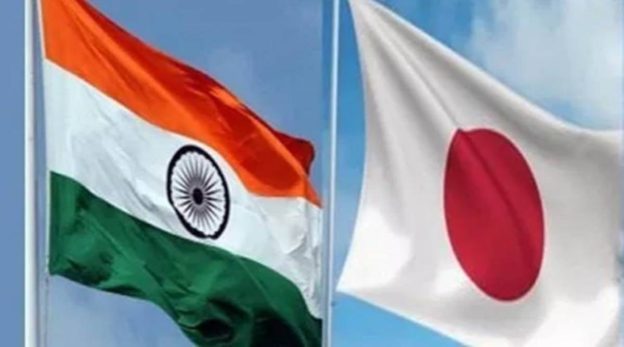Japan’s youngest-ever PM wrote in his book Towards A Beautiful Society that he will not be surprised if in ten years’ time, Japan-India relations overtake Japan-US and Japan-China relations.
At the 14th India-Japan Annual Summit, prime ministers Kishida Fumio and Narendra Modi resolved to further advance the India-Japan Special Strategic and Global Partnership. They shared a common vision that the economies of both countries would be powered by “robust bilateral investment and trade flows through diversified, resilient, transparent, open, secure and predictable global supply chains” according to the joint statement. No doubt, the high watermark of the bilateral relationship was during the premiership of Abe Shinzo when Indo-Japanese ties entered a qualitatively new phase.
Japan’s youngest-ever PM wrote in his book Towards A Beautiful Society that he will not be surprised if in ten years’ time, Japan-India relations overtake Japan-US and Japan-China relations. The challenge for both nations is to translate this ambitious vision into reality. The template of economic cooperation in 2014 is also broadly similar to what was announced at the summit. Under Abe, 3.5 trillion yen ($33.8 billion) was promised by Japan for bullet trains, smart cities, rejuvenation of rivers like the Ganga and clean energy projects. This has now been raised to 5 trillion yen ($42 billion) of public and private investment and ODA in the next five years.
Despite progress in bilateral economic cooperation, the flagship bullet train project between Ahmedabad and Mumbai is still a work-in-progress with land acquisition still not complete. So, too, are dedicated freight and industrial corridors and smart cities. Both leaders affirmed that this bullet train project was an important symbol of India-Japan collaboration; that they would work together for the commencement of operations at the earliest. Currently, there are 1,455 Japanese companies in India. Japan is the only country in the world with 12 dedicated country-focused industrial townships across nine states all over India.
There is a Japan Plus Desk, incorporated in 2014 by an agreement between Abe and Modi, to provide facilitation and hand-holding to investors in India. This has improved comfort levels for Japan to become India’s fifth largest investor. However, this is not reflected in robust trade – two-way flows are only $17.2 billion despite a comprehensive economic partnership agreement (CEPA) since 2011 which sought to abolish duties on most products; increase access for Indian professionals and contractual service providers to the Japanese market. Japan runs a trade surplus of $6.8 billion this fiscal (April-January). At the summit, both leaders recognized the need for enhancing bilateral trade and encouraged further review of the implementation of CEPA through existing mechanisms.
Although India has taken steps to improve the business environment for Japanese investors, this is an area where additional measures are necessary to attract big-ticket investments. For all the bullish surveys of Japan External Trade Organisation that a majority of Japanese companies who have invested in India are positive of expanding their businesses, they don’t take decisions to invest in a hurry. Their exposure to ASEAN is 11-times higher than in India. Net FDI inflows from Japan to India declined sharply to $2.7 billion in 2021 from peak levels of $4.2 billion in 2016 according to JETRO at a time Japan seeks an alternative to investing in China.
Japanese big-ticket investments are bedeviled by concerns over the complicated legal and tax system, difficult labour issues, inadequate infrastructure, poor contract enforcement etc. To tap the unfulfilled promise of the relationship, both Japan and India must exploit their natural complementarities. Japan is a “hard” power with manufacturing prowess. India is a “soft” power in IT and services. Japan is short of natural resources which India has. Japan has capital. India has skilled labour. Japan seeks markets. India has a flourishing huge domestic market.
https://www.financialexpress.com/opinion/a-yen-for-india-to-take-bilateral-relations-forward-japan-and-india-must-exploit-complementarities/2467164/





